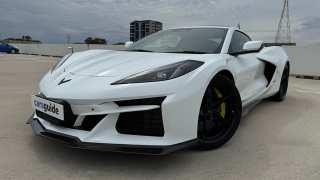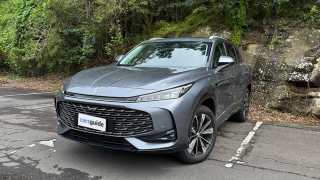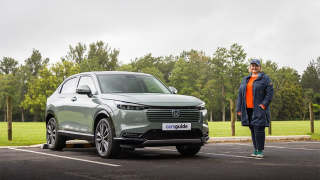
Tesla sales Australia: How many electric cars EV brand sold in first half of 2021 revealed, with Model 3 doing heavy lifting for Model S and Model X
- Tesla Model S
- Tesla Model X
- Tesla MODEL 3
- Tesla Model S 2022
- Tesla Model X 2022
- Tesla Model 3 2022
- Tesla News
- Tesla Sedan Range
- Tesla SUV Range
- Sedan
- Sport
- SUV
- Electric Cars
- Tesla
- Industry news
- Showroom News
- EV News
- Prestige & Luxury Cars
- Electric Cars
- Electric
- EVs
- EV
- Green Cars

Tesla Australia doesn’t like to brag about how many new battery-electric vehicles (BEVs) it sells, but this week’s 2021 State of Electric Vehicles report from the Electric Vehicle Council (EVC) has revealed just how well the American brand is currently doing.
Sales data from the EVC shows that an estimated 8688 new electric vehicles (EVs) were sold in the first half of this year, up 169.3 per cent, with this statistic accounting for BEVs and plug-in hybrid electric vehicles (PHEVs) but not hybrid electric vehicles (HEVs), like those popularised by Toyota Australia.
According to the Federal Chamber of Automotive Industries (FCAI) and its VFACTS report on June 2021’s new-vehicle sales, 2217 BEVs and 1440 PHEVs were sold during the same period by FCAI members (nearly every automotive brand in Australia).
Read more about Tesla
- Major price cut for the Tesla Model 3: Standard Range Plus now $59,900 as Tesla becomes one of the cheapest EV brands in Australia
- 2022 Tesla Model S price and features: Huge cost increase for Porsche Taycan and Audi e-tron GT rival's incoming facelift
- 2022 Tesla Model X price and features: Cost of entry to facelifted Audi e-tron and BMW iX rival gets significantly more expensive
Notably, Tesla Australia is among the very few that don’t submit their sales data to the FCAI, let alone the EVC, but some simple maths using the former and latter’s figures shows that the BEV specialist sold about 5031 such vehicles in the first six months of 2021, up 195.9 per cent.
While the sales split between Tesla Australia’s Model 3 mid-size sedan, Model S large sedan and Model X large SUV is unknown, it’s understood that the former remarkably accounted for every single sale, or close to.
Indeed, the relatively affordable Model 3 (from $59,900 plus on-road costs) has quickly risen to local BEV prominence following it sourcing switch from the US to China, which occurred alongside its first ‘significant’ update late last year.
Conversely, the more expensive Model S (from $162,559) and Model X (from $189,159) have been forced to hit pause while they await the arrival of their major facelifts, which aren’t due to begin Australian deliveries until the end of 2022.
That said, the EVC has also confirmed that local EV sales ended up increasing by 2.7 per cent last year, to 6900 units. Of note, this result came in an Australian new-vehicle market that declined by 13.7 per cent as it grappled with the challenges of COVID lockdowns and semiconductor shortages.
So, factoring in sales data from the FCAI’s December 2020 VFACTS report, it’s estimated that Tesla Australia sold 3446 combined examples of the Model 3, Model S and Model X in 2020.
It goes without saying, but Tesla Australia is continuing to drive local BEV growth to record levels, and its Model Y mid-size SUV hasn’t even arrived yet. But when it does in the coming months, it could quickly overtake the Model 3…










Comments